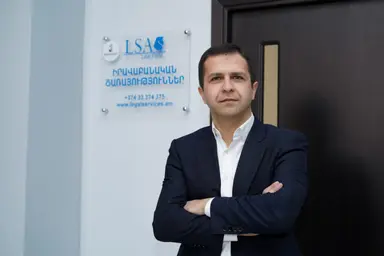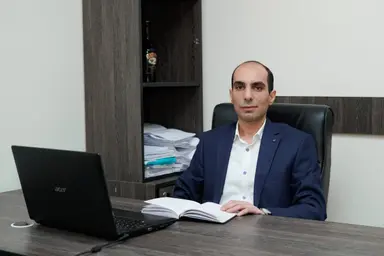Facing financial difficulties can be challenging for both individuals and businesses. In Armenia’s complex legal environment, navigating bankruptcy procedures requires expert legal advice and strategic planning. LSA Law Firm offers specialized bankruptcy services that can assist both businesses and individuals during times of financial hardship.
The Republic of Armenia has a comprehensive legal framework governing bankruptcy procedures, as defined by the Law on Bankruptcy. This law regulates bankruptcy proceedings for various entities, including banks, credit organizations, investment companies, and insurance companies. Understanding this framework is essential for anyone facing financial problems or seeking to recover claims from insolvent entities.
When it comes to professional bankruptcy services in Armenia, clients place their trust in LSA Law Firm. Our team combines in-depth legal knowledge with practical experience to deliver the best possible outcomes for clients in financially difficult situations.
The Legal Framework of Bankruptcy in Armenia
Armenia’s bankruptcy system operates under specific legal regulations that determine when and how bankruptcy proceedings can be initiated.
- Who can apply for bankruptcy: Both individuals and legal entities (companies, sole proprietors) may be declared bankrupt, either through a compulsory bankruptcy petition filed by a creditor or a voluntary bankruptcy application submitted by the debtor. For certain entities, such as banks or the state, bankruptcy matters are regulated by separate laws.
- Grounds for bankruptcy: The basis for compulsory bankruptcy is the existence of undisputed and overdue obligations exceeding a certain threshold (2 million AMD) for a period of 90 days or more. In addition, a debtor may apply for voluntary bankruptcy if their liabilities of 2 million AMD or more exceed the value of their assets.
- Voluntary and Compulsory Bankruptcy: Voluntary bankruptcy is initiated by the individual themselves, which implies broader judicial oversight.
- Regulatory supervision: The Central Bank plays an important role in overseeing bankruptcy processes, especially in the case of financial institutions.
- Specialized court: Armenia has a specialized court designated for bankruptcy cases.
Common Issues of Bankruptcy in Armenia
The bankruptcy process in Armenia presents a number of challenges for both debtors and creditors. Understanding these obstacles is the first step toward developing effective strategies to overcome them.
Complexity of the process
Bankruptcy proceedings in Armenia involve complicated legal procedures that require detailed documentation and specialized expertise. Many clients find themselves in overwhelming situations due to technical requirements and tight deadlines.
Financial and social consequences
Beyond legal implications, bankruptcy can have serious financial and social consequences, including:
- Impact on future business opportunities and access to credit
- Psychological stress and uncertainty
Lack of legal knowledge
Many individuals and legal entities are not fully informed about their rights and obligations during the bankruptcy process. This lack of knowledge can result in missed opportunities to protect their assets.
LSA’s Comprehensive Bankruptcy Services
We offer a full package of bankruptcy services tailored to the needs of both creditors and debtors within the Republic of Armenia.
For debtors (individuals and businesses):
- Strategic bankruptcy consultation – In-depth analysis of your financial situation to determine the best course of action.
- Voluntary bankruptcy applications – Professional support and preparation of necessary documentation for individuals, sole proprietors, and legal entities to initiate bankruptcy proceedings.
- Development of financial recovery plans – Designing rehabilitation programs and conducting negotiations to restore solvency and avoid liquidation.
- Defense in compulsory bankruptcy proceedings – Protection of your rights in compulsory bankruptcy cases.
- Negotiations with creditors – Acting on your behalf to negotiate more favorable terms with creditors.
- Representation in bankruptcy court – Full legal representation during court hearings, meetings, and throughout all stages of the process.
For Creditors (secured and unsecured):
- Initiation of compulsory bankruptcy proceedings – Starting bankruptcy proceedings against insolvent debtors to recover unpaid debts.
- Protection of creditor claims – Ensuring that your claims are filed correctly, on time, and with the proper priority to maximize recovery.
- Representation at creditors’ meetings – Consistent representation of your interests at creditors’ assemblies.
- Investigation and litigation of potential fraud and deliberate bankruptcy – Leveraging our criminal law expertise to uncover and challenge fraudulent transfers, hidden assets, and schemes of intentional bankruptcy.
- Oversight of asset disposal processes – Monitoring property valuation and auction procedures, and contesting them when necessary to ensure transparency and maximize asset value.
The Advantage of LSA’s Bankruptcy Team
LSA stands out with its highly qualified team of lawyers specializing in bankruptcy law, with extensive experience in the field. Our team has successfully represented both creditors and debtors in numerous complex cases.
Our bankruptcy specialists offer:
- Specialized expertise – Our lawyers are dedicated professionals in the field of bankruptcy law.
- Practical experience – Years of handling a wide variety of bankruptcy cases.
- Strategic thinking – Ability to develop innovative solutions for complex challenges.
- Multilingual services – We provide legal services in Armenian, Russian, and English.
By working with our experienced lawyers, clients receive personalized legal assistance tailored to their specific situation.
Frequently Asked Questions
What are the first signs that my business should consider bankruptcy?
Key indicators include failure to pay debts on time, the risk of lawsuits from creditors, and situations where liabilities exceed the total value of your assets. Early consultation can help you explore all options, including recovery, before the crisis deepens.
As an individual, will I lose my home if I file for bankruptcy?
Armenian law provides certain protection measures. The final outcome depends on various factors, including whether the property is mortgaged or not. We can analyze your situation and suggest the best solutions under the circumstances.
How long does the bankruptcy process take in Armenia?
The bankruptcy process usually lasts between 6–12 months, from application to completion, depending on the complexity of the case. Simple liquidations may be completed within 4–6 months, while some cases can take up to 18 months.
As a creditor, how realistic are my chances of recovering my money?
The recovery prospects depend on whether your claim is secured or unsecured, as well as on the total value of the debtor’s assets and the number of other creditors involved.
What happens to secured creditors during the bankruptcy process?
Secured creditors retain priority rights over their collateral. However, there may be a temporary restriction on the enforcement of collateral during the recovery process. Our team ensures that the interests of secured creditors are properly represented throughout the proceedings.
Can a bankruptcy application be rejected by the court?
Yes, a bankruptcy application can be rejected if it does not meet the legal requirements—for example, if the debt amount is insufficient or the documentation is incomplete. Our expertise ensures that applications are properly prepared to avoid rejections.
Take the First Step Toward Resolving Your Financial Matters
Do not face financial uncertainty alone. The decisions you make today will have a long-term impact on your future.
Contact LSA Law Firm today to discuss your situation. Our team is ready to provide you with the necessary guidance and legal protection.
































